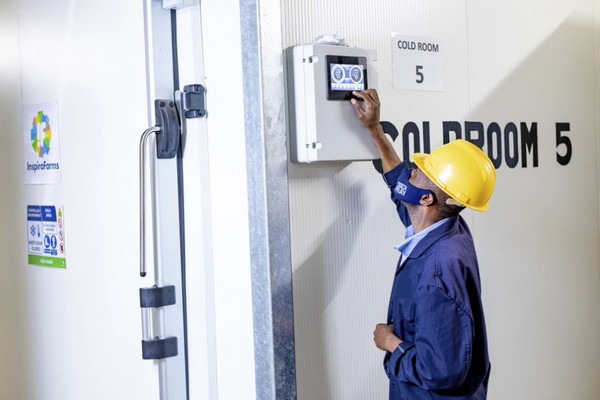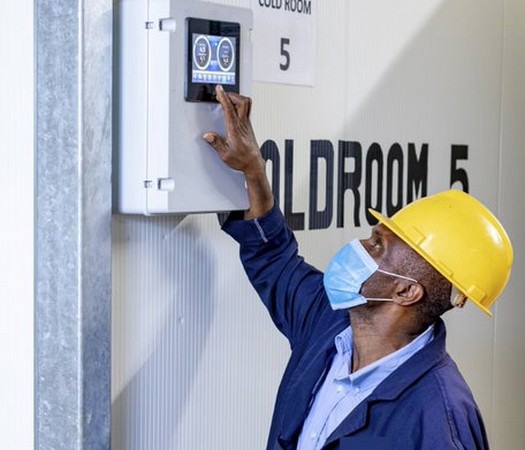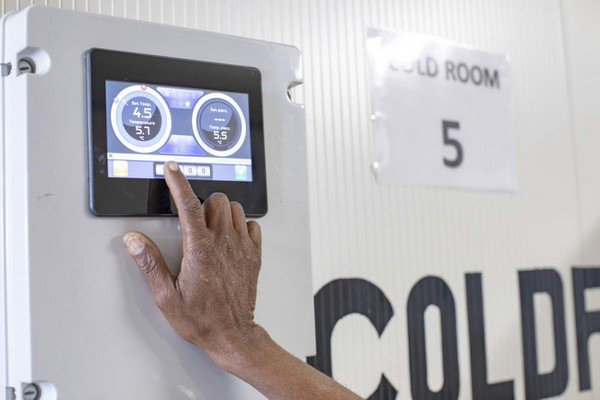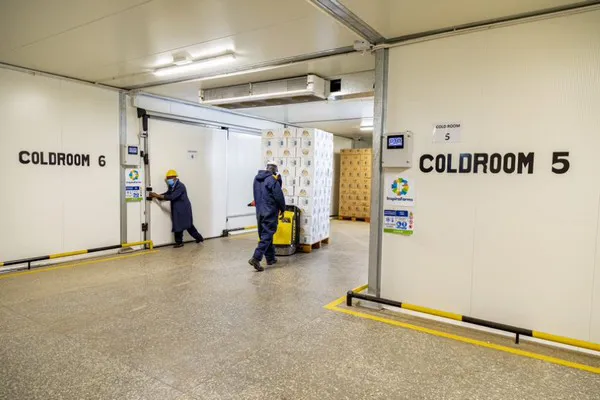"The cold chain, particularly for cut flowers, must start on-farm, right after flowers are picked and cut," says Michele Bruni, founder and chief commercial officer at InspiraFarms, a company that designs, develops, and supplies modular and energy-efficient on-farm and close-to-farm pre-coolers, cold storage and packhouses for the horticultural sector in emerging markets, with a focus on African countries.

"Precooling at the farm must be a common practice, with whatever transport mode is selected. Many studies have demonstrated that transport of flowers in slower surface modes, such as trucks and sea, ought to undergo precooling for better out-turns, compared to air freight, which is faster."
From their clients' interactions, they are noticing an increased demand, particularly for cold rooms with additional precooling capabilities. "Clients that have used our most recent systems from 2019 have noticed an impressive reduction in shrinkage of up to 50%, and claims cut down from 15 to 2 within a year. Additionally, we have documented an important extension in shelf-life allowing them to shift from air to sea freight, bringing the payback time of their cooling machine to under below two years."

Importance of precooling on flower quality
"Optimal cold chain is the most critical yet challenging element for the success of flower producers and exporters. However, across the globe, many flower supply chains are underperforming", she explains. "According to FlowerWatch, at least 20 percent of flower produce is unacceptable due to systematic underperformance across the chain and poor post-harvest practices at the farm. These include poor packaging and inadequate cold chain, causing increased heat exposure and therefore fast flower decay."
"Each 500-degree hour (as suggested by FlowerWatch; 1-degree hour = 1-hour x 1° C away from the flower's target cold chain temperature) reduces vase life by one whole day, so the key objective is to reduce the number of degree hours since the cut and not to lose more than one day of vase life before the flowers are sold. If we imagine a batch of flowers taking 5 days (120 hours) from the harvest to the retailer and those flowers are kept at 7°C instead of 2°C due to an under-dimensioned or badly managed cold chain, we are already at 600- degree hours, drastically reducing the value of the flowers that will decay quickly after being sold."

Michele explains that the respiration of cut flowers generates heat as a by-product, and as the ambient temperature rises, the respiration rate increases.
"The rate of aging can be reduced dramatically by cooling the flowers at an optimal temperature as soon as possible. By complementing the cold chain with rapid cooling (or precooling) techniques, you allow each flower stem to cool down quicker than just using standard cooling technology. When compared to solely using standard cooling, precooling can bring the flowers to optimal temperature within 15 to 60 minutes, while standard cooling alone can take a day. Therefore, more degree hours are spent at the origin.
He stresses that the cold chain, particularly for cut flowers, must start on-farm, right after flowers are picked and cut.
"Most flower farms ship their product to the airport within 48 hours after picking. During this time, the temperature and humidity conditions ought to be controlled by bringing down the temperature and maintaining an ideal range of around 1°C to 3°C for most types of flowers. This way, throughout the processes of grading, bundling, and shipment in reefer trucks, quality control is assured, as decomposition, shrinkage, and weight reduction are slowed down."

What is the role of precooling flowers for sea freight?
Sea-freight has increasingly gained popularity in the last few years, especially because it is cheaper and has a much lower carbon footprint. With the impact of Covid-19 on global logistics, airfreight has been cut down by an estimated 25-30% due to the rise in charges and the unavailability of reliable cargo planes. For these reasons, airfreight is still not an option for many flower farmers and exporters as they don't have the right cooling protocols required to keep fresh during long sea trips. However, on-farm precooling guarantees the extra vase-life needed to face transit times of more than 20 days, which is the minimum number of days that sailing takes from African countries such as Kenya to Europe."
The cold chain opportunities for cut flowers in Kenya
Advanced precooling treatments at origin were not always common practice in Kenya, as most of those flowers were shipped daily to flower auctions in the Netherlands.
"Nowadays, more than 50% of the flowers are exported directly to retailers and traders without passing through Dutch flower auctions. This is impacted by the demand for flowers, for which some are kept in on-farm cold storage while others are exported just a few hours after being harvested. To be able to export each flower stem at the right temperature, precooling is mandatory," continued the
Founder and Chief Commercial Officer .

Over the years, Kenya has developed relatively advanced cold chain systems compared to those established for horticulture and other temperature-controlled foods. However, the technology in place needs to be renewed with more advanced technology. Additionally, for cargo handling companies, it is important to keep investing in adequate and modern cooling infrastructures, such as cold stores and precooling facilities", he adds.
How InspiraFarms provides precooling for the flower industry
InspiraFarms provides exporters, 3PL, and fresh produce distributors with forced air pre-coolers and blast chillers for handling fresh produce. Based on a decennial experience in the sector, they are able to drop down temperatures as quickly as possible, minimizing shrinkage and damages, while keeping condensation and therefore mold at bay., Cumulatively, this increases the value of the crops, significantly cutting energy costs, reduces production losses and meets major international certifications.
"Precooling technology allows the pressure and cold airflow through the packaging (from crates and boxes to punnets and clamshells). This then allows each to cool down to the core, reducing its activity, delaying senescence, and therefore extending shelf-life."
Their systems provide control and flexibility over cooling to equally and effectively reach every package on a pallet, crate, box, or bin. A tarp included in the system is laid across the top and back of the stock, allowing it to seal and keep the flow of cold air through the product rather than around it. When the fan is turned on, it pulls or forces the airflow through the boxes, removing the heat through convection.
"Additionally, we offer remote monitoring data solutions through our data platform, InspiraCoolCloud; a cloud-based data center to access readings and reports on cold room parameters such as temperature, energy, door openings, humidity, and more. This enables cold chain operations to know, in real-time, the health of their product and allows for traceability. Our blast chiller system has pressures of up to 300 Pa (Pascal) and adjustable airflows. Additionally, loading docks for on-site loading of reefer containers and mold reduction are incorporated for flowers exported by sea freight." explains Michele.
The company also offers regular cooling systems (slow cooling or maintaining optimal temperature) from 5 to 500+ kW, with the capacity to cool from 10 to over 1000 pallets. Multiple units can be placed in the same room, and the machines are suitable for existing cold rooms as well, with customized solutions on temperature, pressure, relative humidity, and airflow to keep the freshness of each flower stem.
For more information:
InspiraFarms
Michele Bruni
Tel:+44 (0) 20 3893 2420
Email: info@inspirafarms.com
www.inspirafarms.com
